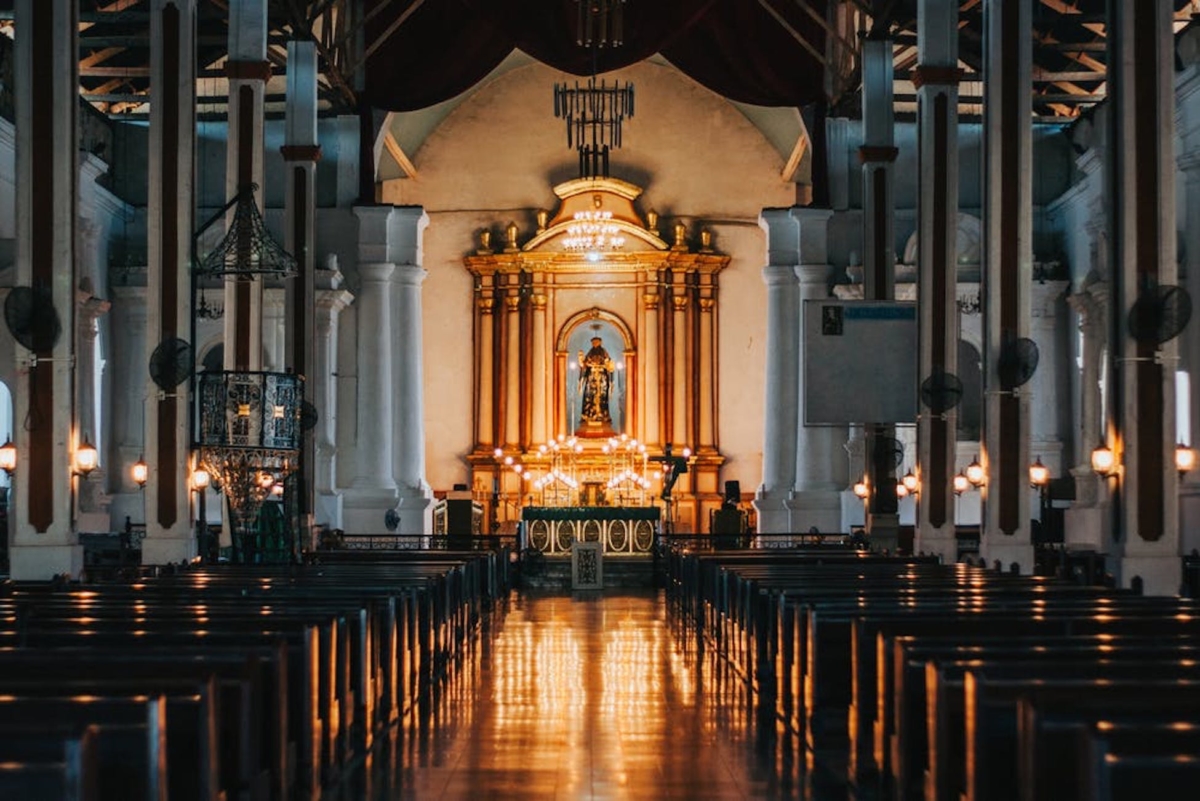News and Media

What Does It Mean To Be Part Of The Globalised Church? by Michael McVeigh
Most of us wouldn’t know much about the Central African Republic. A landlocked country in the middle of Africa, it is home to around 4.6 million people. Despite being the site of ongoing conflict between Christian and Muslim militias in recent years, it is rarely featured in our news here in Australia.
But in 2015, the Central African Republic did make the news – and not for another outbreak of violence. In November that year, Pope Francis launched the Catholic Church’s Year of Mercy in Bangui, the country’s capital. Opening the Holy Door of the Cathedral in front of a crowd of onlookers, the Pope declared that the city was, that day, ‘the spiritual capital of the world’.
Traditionally, only churches in Rome have had Holy Doors. They are generally designated during jubilee years so that pilgrims may walk through them to receive the plenary indulgences that are available to them during those celebrations. The Year of Mercy was the first time a Pope had allowed Holy Doors to be designated in other dioceses. The Central African Republic, which few could even find on a map, was the first place where a Door of Mercy was opened.
Pope Francis has spoken about what he terms the ‘globalisation of indifference’, which often arises as a defence mechanism when people are confronted with the overwhelming difficulties facing people around the world. It’s difficult not to despair at the endless stories of violence and conflict in our media. Sometimes we can feel like the only option is to turn off, to focus on the immediate needs of ourselves and those closest to us.
But, in his travels and in his speeches, Pope Francis puts forward an alternative approach – one that doesn’t just focus on our own needs and goals, but sees each of us as part of a different type of global community.
“To the modern concept of the intellectual working for the realisation of self and in search of personal recognition, it is necessary to counter with a model built on solidarity, which works for the common good and for peace’, he told a group of international students last year. ‘In this way, young people are formed who thirst for truth and not power, ready to defend their values and live mercy and charity, which are the fundamental pillars for a healthier society.”
There is an enormous blessing that comes from being part of a globalised Church. It allows us to experience a solidarity with Christian communities in places like the Central African Republic that have been torn apart by conflict. Organisations like Caritas and Catholic Mission offer a way for Catholic schools to contribute in a meaningful way to the lives of people in those communities. Students might even go on immersion trips where they connect with Catholic communities in developing countries.
Catholic communities here in Australia are also enriched by being part of a globalised Church. Many parishes welcome priests from overseas, and host regular liturgies for migrant groups. Our Catholic schools attract families from different backgrounds, many of whom first connected with the Church in countries a long way from Australia. They trust that the values that they were raised with will also be passed on to their children because our Church is a universal one.
Once you start to see yourself as part of a worldwide community of people with the same values and interests, other barriers also start to fall down. While he was in the Central African Republic, Pope Francis made a visit to a mosque that had been besieged by Christian militias.
“Christians and Muslims are brothers and sisters”, he said to the men gathered inside. “Together we must say no to hatred, to revenge and to violence, particularly that violence which is perpetrated in the name of a religion or of God himself. God is peace. Salaam.”
While globalisation has many detractors, there are in reality two types of globalisation – that which creates inequality and conflict, pushing people apart; and that which creates peace and prosperity, turning people into brothers and sisters.
Under the leadership of Pope Francis, the Catholic Church is becoming more of a beacon to those who look for that latter type of globalisation, where the concerns of those at the forgotten margins of our world are the centre of attention for the global community.
As Jesuit priest Fr David Holdcroft recent wrote in Eureka Street, “Francis’ approach was not primarily theological; it was in the first place pastoral and active. It was to travel and place himself at the centre of people’s lived experience, withholding moral judgement, but helping its participants to situate their experience – and suffering – within a larger narrative and analysis.”
Fr Holdcroft points to Pope Francis’ homily on the island of Lampedusa, the landing place of many boat migrants attempting to find passage to Europe, and where it’s impossible to forget the many who perished trying to make the journey. “The culture of comfort, which makes us think only of ourselves, makes us insensitive to the cries of other people, makes us live in soap bubbles which, however lovely, are insubstantial’, said Pope Francis. ‘In this globalized world, we have fallen into globalized indifference. We have become used to the suffering of others: it doesn’t affect me; it doesn’t concern me; it’s none of my business!”
He continued, “Let us ask the Lord for the grace to weep over our indifference, to weep over the cruelty of our world, of our own hearts, and of all those who in anonymity make social and economic decisions which open the door to tragic situations like this.”
In a sense, what Pope Francis has done is made the peripheries the heart of our Church. With Pope Francis, the heart of our Church is no longer Rome. The heart is wherever the lost and abandoned congregate, wherever the desperate cry out for help, wherever victims seek shelter. The heart of a globalised Church is at the margins – the same place that Jesus lived.

Michael McVeigh has been the editor of Australian Catholics magazine since 2005, and is also the senior editor at Jesuit Communications Australia, overseeing Eureka Street and Madonna magazine.
Provide copies of the magazine to parents or teachers in your school and help bring the faith to life in your community. Go to www.australiancatholics.com.au to find out how to subscribe.
One of the main focuses of the magazine in recent years has been to promote young writers. Through an internship program, students from Catholic high schools are given the opportunity to plan and edit one edition of Australian Catholics magazine each year. The magazine’s Young Journalist Award attracts more than 1000 entries from across the country annually, and the magazine’s young writers community offers ongoing opportunities and support for dozens of young people aged 15 to 25.
Outside of his work for Jesuit Communications, Michael has held positions on the Australian Catholic Media Council and the executive of the Australasian Catholic Press Association, as well as the Jesuits’ Asia Pacific communications group.

